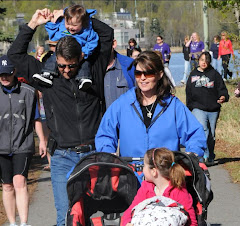This is unbelievable:
-------------
MALMO, SWEDEN — At some point, the shouts of “Heil Hitler” that often greeted Marcus Eilenberg as he walked to the 107-year-old Moorish-style synagogue in this port city forced the 32-year-old attorney to make a difficult, life-changing decision: Fearing for his family’s safety after repeated anti-Semitic incidents, Eilenberg reluctantly uprooted himself and his wife and two children, and moved to Israel in May.
Sweden, a country long regarded as a model of tolerance, has, ironically, been a refuge for Eilenberg’s family. His paternal grandparents found a home in Malmo in 1945 after surviving the Holocaust. His wife’s parents came to Malmo from Poland in 1968 after the communist government there launched an anti-Semitic purge.
But as in many other cities across Europe, a rapidly growing Muslim population living in segregated conditions that seem to breed alienation has mixed toxically with the anger directed at Israeli policies and actions by those Muslims — and by many non-Muslims — to all but transform the lives of local Jews. Like many of their counterparts in other European cities, the Jews of Malmo report being subjected increasingly to threats, intimidation and actual violence as stand-ins for Israel.
“I didn’t want my small children to grow up in this environment,” Eilenberg said in a phone interview just before leaving Malmo. “It wouldn’t be fair to them to stay in Malmo.”
Malmo...reached a turning point of sorts in January 2009, during Israel’s military campaign in Gaza. A small, mostly Jewish group held a demonstration that was billed as a peace rally but seen as a sign of support for Israel. This peaceful demonstration was cut short when the demonstrators were attacked by a much larger screaming mob of Muslims and Swedish leftists who threw bottles and firecrackers at them as police seemed unable to stop the mounting mayhem.
“I was very scared and upset at the same time,” recalled Jehoshua Kaufman, a Jewish community leader. “Scared because there were a lot of angry people facing us, shouting insults and throwing bottles and firecrackers at the same time. The sound was very loud. And I was angry because we really wanted to go through with this demonstration, and we weren’t allowed to finish it.”
Alan Widman, who is a strapping 6-foot-tall member of parliament and a non-Jewish member of the Liberal Party who represents Malmo, said simply, “I have never been so afraid in my life.”
The demonstrators were eventually evacuated by the police, who were not present in sufficient numbers to protect their rally. But some participants complained that the police’s crowd-control dogs remained muzzled.
The Eilenbergs are not particularly religious, but they have a strong Jewish identity and felt unable to live in Malmo as Jews after this episode. Eilenberg said he knows at least 15 other Jewish families that are thinking about moving away...
Saeed Azams, Malmo’s chief imam, who represents most of the city’s Muslims, is quick to disavow and condemn violence against Malmo’s Jews. Recently, he, along with Jewish leaders, have been participating in a dialogue group organized by city officials that seeks to address the issue. But Azams also downplayed the seriousness of the problem, saying there were “not more than 100 people, most under 18 years old,” who engage in violence and belong to street gangs. “There are some things I can’t control,” he said...
But the problem is not just Muslims, and not just Malmo’s.
A continentwide study, conducted by the Institute for Interdisciplinary Research on Conflict and Violence at the University of Bielefeld in Germany, released in December 2009, found that that 45.7% of the Europeans surveyed agree somewhat or strongly with the following statement: “Israel is conducting a war of extermination against the Palestinians.” And 37.4% agreed with this statement: “Considering Israel’s policy, I can understand why people do not like Jews.”
“[There is] quite a high level of anti-Semitism that is hidden beneath critics of Israel’s policies,” said Beate Kupper, one of the study’s principal researchers, in a telephone interview with the Forward, citing this data and a tendency to “blame Jews in general for Israel’s policies.”
Kupper said that in places where there is a strong taboo against expressions of anti-Semitism, such as Germany, “Criticism of Israel is a great way to express your anti-Semitism in an indirect way.”
According to Bassam Tibi, professor emeritus of international relations at the University of Goettingen in Germany, and author of several books on the growth of Islam in Europe, Muslims form a significant subset of this problem. “The growth of the Muslim diaspora in Europe is affecting the Jews,” Tibi said. Among some Muslim populations in Europe — though not all — “every Jew is seen as responsible for what Israel is doing and can be a target...”
Because he is the most visible Jew in Malmo, with his black fedora, tzitzit and long beard, Malmo’s only rabbi, Shneur Kesselman, 31, is a prime target for Muslim anti-Jewish sentiment. The Orthodox Chabad rabbi said that during his six years in the city, he has been the victim of more than 50 anti-Semitic incidents. An American, Kesselman is a soft spoken man with a steely determination to stay in Malmo despite the danger.
Two members of the American Embassy in Stockholm visited him in April to discuss his safety. From Keselman’s account, they had good reason to worry.
The rabbi recalled the day he was crossing a street near his house with his wife when a car suddenly went into reverse and sped backward toward them. They dodged the vehicle and barely made it to the other side of the street. “My wife was screaming,” the rabbi said. “It was a traumatic event.”
Local newspapers report that the number of anti-Semitic incidents in Malmo doubled in 2009 from 2008, though police could not confirm this. Meanwhile, Fredrik Sieradzki, spokesman for the Malmo Jewish community, estimates that the already small Jewish population is shrinking by 5% a year. “Malmo is a place to move away from,” he said, citing anti-Semitism as the primary reason. “The community was twice as large two decades ago.” The synagogue on Foreningsgatan, a fashionable street, has elaborate security. Reflecting the level of fear, the building’s glass is not just bullet-proof, Jewish communal officials say; it’s rocket-proof. Guards check strangers seeking to enter the synagogue...
One victim was Jonathan Tsubarah, 19, the son of an Israeli Jew who settled in Sweden. As he strolled through the city’s cobble-stoned Gustav Adolph Square on August 21, 2009, three young men — a Palestinian and two Somalis — stopped him and asked where he was from, he recalled.
“I’m from Israel,” Tsubarah responded.
“I’m from Palestine,” one assailant retorted, “and I will kill you.”
The three beat him to the ground and kicked him in the back, Tsubarah said. “Kill the Jew,” they shouted. “Now are you proud to be a Jew?”
“No I am not,” the slightly built teenager replied. He said he did this just to get them to stop kicking him. Tsubarah plans to go to Israel and join the army.
Many Jews fault Swedish police for not cracking down on anti-Semitism. Most hate crimes in Malmo are acts of vandalism, said Susanne Gosenius, head of the newly created hate crime unit of the Malmo Police Department These include painted swastikas on buildings. According to Gosenius, police do not give priority to this type of crime. “It’s very rare that police find the perpetrators,” she said. “Swedes don’t understand why swastikas are bad and how they offend Jews.” According to Gosenius, 30% of the hate crimes in the Malmo region are anti-Semitic.
Members of Parliament have attended anti-Israel rallies where the Israeli flag was burned while the flags of Hamas and Hezbollah were waved, and the rhetoric was often anti-Semitic—not just anti-Israel. But such public rhetoric is not branded hateful and denounced, said Henrik Bachner, a writer and professor of history at the University of Lund, near Malmo...
During an interview in his office, Imam Saeed Azams said it was wrong to blame Swedish Jews for Israel’s actions. The wheelchair-bound Azams stressed the importance of teaching young Muslims to stop equating the Jews of Malmo with Israel. But this seemed to include an assumption that Jews, in turn, should not permit themselves to be seen as pro-Israel.
“Because Jewish society in Sweden does not condemn the clearly illegal actions of Israel,” he said, “then ordinary people think the Jews here are allied to Israel, but this is not true.”
The imam is an advocate of dialogue with Jewish leaders, and welcomed the creation of the dialogue forum. Reepalu, Malmo’s mayor, has appointed Bjorn Lagerback, a psychologist, to take charge of the newly formed forum. And Sieradzki, the Jewish community leader, was optimistic about its prospects to eventually improve relations...
Meanwhile, 86-year-old Judith Popinski says she is no longer invited to schools that have a large Muslim presence to tell her story of surviving the Holocaust.
Popinski found refuge in Malmo in 1945. Until recently, she told her story in Malmo schools as part of their Holocaust studies program. Now, some schools no longer ask Holocaust survivors to tell their stories, because Muslim students treat them with such disrespect, either ignoring the speakers or walking out of the class.
“Malmo reminds me of the anti-Semitism I felt as a child in Poland before the war,” she told the Forward while sitting in her living room, which is adorned with Persian rugs and many paintings.
“I am not safe as a Jew in Sweden anymore,” a trembling Popinski said in a frail voice. But unlike others, she intends to stay in Sweden. “I will not be a victim again,” she said.
Subscribe to:
Post Comments (Atom)



















No comments:
Post a Comment